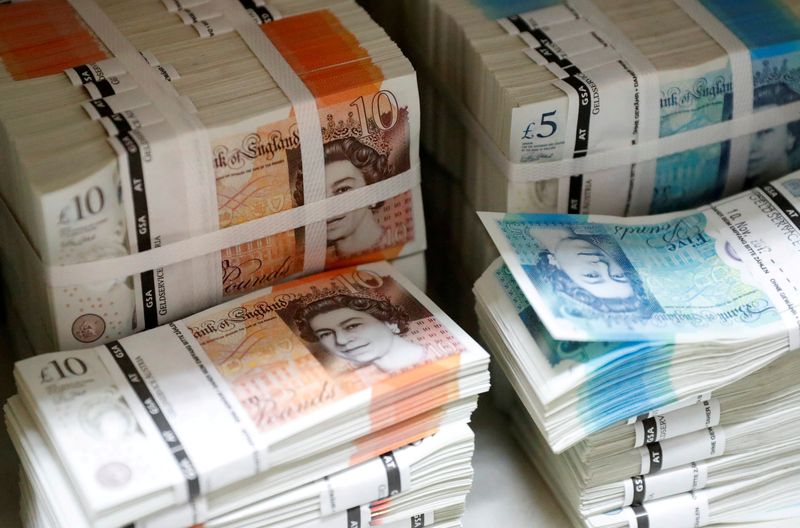LONDON (Reuters) - The British pound declined against a strengthening U.S. dollar on Friday and was on track for a weekly loss of around 0.7% as UK manufacturing growth hit a 13-month low, while U.S. job growth continued at a brisk clip last month.
The S&P Global/CIPS UK Manufacturing Purchasing Managers' Index (PMI) fell to 55.2 in March, revised down from a preliminary reading of 55.5 and below the 58.0 recorded in February.
Meanwhile, data from the United States showed further evidence of a tight labour market, with the U.S. unemployment rate falling to a two-year low, positioning the Federal Reserve to raise interest rates by 50 basis points in May.
At 1407 GMT, sterling was down 0.3% against the dollar to $1.3102.
Against the euro, sterling was down 0.1% at 84.27 pence, after hitting a three-month low against the single currency on Thursday before recovering.
Bank of England Governor Andrew Bailey said the central bank had seen evidence of an economic slowdown which they expect will weigh on domestically generated inflation.
"There has been little to pull the GBP away from the pack this week, but Bailey’s cautious comments last Friday may still be resonating with markets in contrast to the hawkish tone of Fed officials," Scotiabank analysts said in a research note.

However, money markets are still pricing in 138 basis points of tightening from the BoE this year, which would take the key rate above 2.0%.
"We think markets are too optimistic on BoE hikes this year so the divergence between the two central banks should become clearer in coming weeks and further pull the GBP towards a re-test of 1.30," Scotia added.